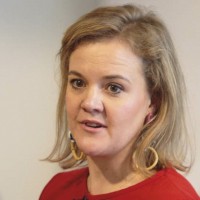| Institution | Headquarters | Region | Category | Total financial assets in million $US (lending and investments) |
Partner / Supporter | Date |
| a.s.r. asset management | Netherlands | Europe | Asset owner/managers | 70,000 | Supporter | Mar, 2021 |
| ABN AMRO | Netherlands | Europe | Commercial bank | 410,647 | Partner | Mar, 2021 |
| Achmea Investment Management | Netherlands | Europe | Asset owner/managers | 187,762 | Supporter | Mar, 2021 |
| AFD | France | Europe | Development bank | 14,408 | Supporter | Jun, 2021 |
| APG | Netherlands | Europe | Asset owner/managers | 571,000 | Supporter | Mar, 2021 |
| Arboreal | Netherlands | Europe | Impact investor | 22 | Supporter | Feb, 2022 |
| ASN Bank | Netherlands | Europe | Commercial bank | 86,218 | Partner | Nov, 2019 |
| ASN Impact Investors | Netherlands | Europe | Impact investor | 4,420 | Partner | April, 2023 |
| Asset Management One | Japan | Asia | Asset owner/managers | 460,000 | Supporter | Mar, 2024 |
| Aviva Investors | United Kingdom | Europe | Asset owner/managers | 304,189 | Supporter | June, 2022 |
| Aviva plc | United Kingdom | Europe | Insurance | 520,187 | Supporter | April, 2025 |
| Bank of Ireland | Ireland | Europe | Commercial bank | 39,000 | Partner | Dec, 2022 |
| BMO Financial Group | Canada | North America | Commercial bank | 834,691 | Supporter | Mar, 2023 |
| BNP Paribas | France | Europe | Asset owner/managers | 2,816,609 | Supporter | Mar, 2021 |
| CaixaBank | Spain | Europe | Commercial bank | 657,619 | Supporter | 27-06-2024 |
| Cardano Asset Management N.V. | Netherlands | Europe | Asset owner/managers | 20 | Supporter | Nov, 2019 |
| Cathay Financial Holding Company | Taiwan, China | Asia | Financial services group | 339,790 | Supporter | Sept, 2022 |
| COMGEST S.A. | France | Europe | Asset owner/managers | 32,400 | Partner | Nov, 2023 |
| CTBC Financial Holding Company | Taiwan, China | Asia | Asset owner/managers | 241,164 | Supporter | Dec, 2022 |
| Danske Bank | Denmark | Europe | Commercial bank | 583,582 | Partner | June, 2022 |
| Deutsche Kreditbank AG | Germany | Europe | Commercial bank | 145,668 | Partner | April, 2024 |
| DGB Financial Group | South Korea | Asia | Commercial bank | 71,700 | Supporter | Aug, 2022 |
| DNB Bank ASA | Norway | Europe | Commercial bank | 174,760 | Supporter | Dec, 2022 |
| E.SUN Financial Holding Company | Taiwan, China | Asia | Commercial bank | 111,050 | Supporter | Sep, 2023 |
| EcoEnterprises Fund | United States | North America | Impact investor | 143 | Supporter | Nov, 2021 |
| Emirates National Bank of Dubai | United Arab Emirates | Asia | Commercial bank | 234,897 | Partner | Dec, 2023 |
| Ethias | Belgium | Europe | Insurance | 22,605 | Supporter | Jan, 2022 |
| Farm Credit Canada (FCC) | Canada | North America | Financial services group | 36,000 | Supporter | Oct, 2024 |
| Finance in Motion | Germany | Europe | Impact investor | 3,436 | Supporter | Mar, 2021 |
| First Abu Dhabi Bank | United Arab Emirates | Asia | Commercial bank | 300,000 | Supporter | Mar, 2024 |
| FirstRand Group Ltd. | South Africa | Africa | Commercial bank | 111,000 | Partner | Mar, 2021 |
| FMO | Netherlands | Europe | Development bank | 14,223 | Partner | Nov, 2019 |
| Franklin Templeton Fixed Income Group | United States | North America | Asset owner/managers | 143,000 | Supporter | June, 2022 |
| Fubon Financial Holdings | Taiwan, China | Asia | Financial services group | 347,072 | Supporter | Aug, 2024 |
| Hana Financial Group | South Korea | Asia | Commercial bank | 44,870 | Supporter | May, 2023 |
| Impact Orange Partners | Netherlands | Europe | Financial services group | 0 | Premium Supporter | July, 2024 |
| international business of Federated Hermes | United Kingdom | Europe | Asset owner/managers | 53,200 | Supporter | Feb, 2022 |
| Investec | South Africa | Africa | Commercial bank | 70,750 | Supporter | Mar, 2023 |
| Just Group | United Kingdom | Europe | Financial services group | 28,366 | Partner | Feb, 2024 |
| Kutxabank | Spain | Europe | Commercial bank | 70,402 | Supporter | Sep, 2024 |
| La Banque Postale Asset Management | France | Europe | Asset owner/managers | 60,920 | Supporter | Dec, 2022 |
| Landsbankinn | Iceland | Europe | Commercial bank | 4,660 | Partner | Dec. 2022 |
| Luminor Bank | Estonia | Europe | Commercial bank | 16,316 | Partner | Feb, 2025 |
| Merkur | Denmark | Europe | Commercial bank | 640 | Supporter | Feb, 2023 |
| MN | Netherlands | Europe | Asset owner/managers | 180,000 | Partner | July, 2022 |
| NN Investment Partners | Netherlands | Europe | Asset owner/managers | 360,925 | Supporter | Mar, 2021 |
| Norinchukin Bank | Japan | Asia | Commercial bank | 708,100 | Premium Supporter | Feb, 2024 |
| NWB Bank | Netherlands | Europe | Promotional bank | 79,054 | Supporter | Mar, 2021 |
| O-Bank Co., Ltd. | Taiwan, China | Asia | Commercial bank | 18,201 | Supporter | Aug, 2024 |
| ODDO BHF Asset Management | France | Europe | Asset owner/managers | 73,500 | Supporter | Dec, 2021 |
| OP Financial Group | Helsinki | Europe | Integrated bank-insurance group | 155,000 | Partner | Jan, 2024 |
| PGGM | Netherlands | Europe | Asset owner/managers | 319,164 | Supporter | Jun, 2021 |
| PGIM Fixed Income | London | Europe | Asset owner/managers | 859,000 | Partner | Jan, 2025 |
| Phenix Capital Group | Netherlands | Europe | Financial services group | 0 | Supporter | Dec, 2022 |
| Piraeus Financial Holdings | Greece | Europe | Commercial bank | 69,839 | Partner | Mar, 2021 |
| PME | Netherlands | Europe | Asset owner/managers | 59,300 | Supporter | July, 2022 |
| PMT | Netherlands | Europe | Asset owner/managers | 97,400 | Supporter | July, 2022 |
| Pymwymic | Netherlands | Europe | Impact investor | 100 | Supporter | Jun, 2021 |
| Rabobank | Netherlands | Europe | Commercial bank | 752,053 | Partner | Mar, 2021 |
| Rathbone Greenbank | United Kingdom | Europe | Asset owner/managers | 2,590 | Supporter | Mar, 2021 |
| Robeco | Netherlands | Europe | Asset owner/managers | 183,712 | Supporter | Nov, 2019 |
| Shinhan Financial Group | South Korea | Asia | Commercial bank | 544,080 | Supporter | Sept, 2022 |
| SIGNATURE Agri Investments | Netherlands | Europe | Asset owner/managers | 100 | Supporter | Mar, 2021 |
| SinoPac Financial Holdings Company Limited | Taiwan, China | Asia | Financial services group | 90,118 | Supporter | Feb, 2025 |
| Sparebanken Øst | Norway | Europe | Commercial bank | 401 | Supporter | Jun, 2023 |
| Sycomore | France | Europe | Asset owner/managers | 10,100 | Partner | Jun, 2021 |
| Triodos Bank | Netherlands | Europe | Commercial bank | 21,295 | Partner | Nov, 2019 |
| Triple Jump | Netherlands | Europe | Impact investor | 1,100 | Partner | Nov, 2019 |
| Unicaja Banco S.A. | Spain | Europe | Commercial bank | 108,039 | Supporter | Dec, 2024 |
| Van Lanschot Kempen | Netherlands | Europe | Asset owner/managers | 119,139 | Partner | Mar, 2021 |
| VP Capital | Netherlands | Europe | Impact investor | 0 | Premium Supporter | Jan, 2024 |
| Wellington Management Company | United States | North America | Asset owner/managers | 1,000,000 | Supporter | Nov, 2022 |
| Woori Financial Group | South Korea | Asia | Commercial bank | 454,300 | Supporter | Aug, 2022 |
| Yuanta Financial Holding Company | Taiwan, China | Asia | Financial services group | 101,916 | Supporter | Dec, 2023 |
| Total 74 institutions | Total financial assets: $ 16.6 Trillion | |||||

Peter Blom, CEO Triodos Bank
The loss of biodiversity is one of the greatest challenges for the existence of life on earth. The damage to biodiversity caused by our way of living, specifically agriculture, is considerable. We are at the point that we should not talk about reducing harm to biodiversity, but about regeneration. That is exactly what Triodos Bank aims to do with its loans and investments. In order to measure and report on the financial sector’s impact on biodiversity, a common methodology is needed. That is why the work of the Partnership Biodiversity Accounting Financials is so important. The collaboration between several financial institutions to find common ground will help formulate business strategies that have a positive impact on biodiversity.

Steven Evers, Managing Director, Triple Jump
Investors are only just beginning to factor in biodiversity in their allocation decision, and this at a time when over half the world’s GDP is at risk because of nature loss. We believe that transitioning to an economy that preserves nature presents an opportunity for financial institutions to play a crucial role in restoring biodiversity. The PBAF report offers guidelines to measure and assess the impact of investments on biodiversity. Building on the pioneering work of ASN Bank, Triple Jump is proud to contribute its expertise in impact investing and measurement to this partnership and looks forward to furthering this dialogue.

Carola van Lamoen, Head of Sustainability Investing Center of Expertise Robeco
Robeco recognizes the financial risks of biodiversity loss and actively engages to mitigate the negative impact of deforestation in the global supply chains where our investments have exposure to. On top of that we are committed to find ways to measure the biodiversity footprint of our portfolio and aim to provide transparency on this topic to our clients and to society. The work of the Partnership Biodiversity Accounting Financials that is collected in this Common Ground report is crucial for us to make the next step on this journey.

Frank Elderson, Executive Board Member Nederlandsche Bank N.V.
It is now widely accepted that climate-related risks are a source of financial risks. However, so far too few are aware of financial risks arising from biodiversity loss. The work of the Partnership Biodiversity Accounting Financials (PBAF) is therefore essential as it enables financial institutions to track their impact on biodiversity. This is an important step towards understanding, measuring and managing biodiversity-related financial risks by financial institutions.

Caroline van Leenders, Senior policy maker Dutch Ministry of Agriculture, Nature and Food Quality, Directory Nature
Halting the loss of biodiversity is a policy objective of the Ministry of Agriculture, Nature and Food Quality (LNV). In addition to more traditional policy instruments aimed at the conservation of nature, LNV is also interested in the leverage that the financial sector can have when it comes to reducing the negative impact on biodiversity and investing in projects with a positive contribution to nature. An important policy goal is the increase in transparency about the relationship with nature in the financial sector. That is why the Ministry has been supporting the Partnership for Biodiversity Accounting Financials for several years by co-financing research into methodology development and the dissemination of knowledge and insights on international fora. We are proud to work alongside Dutch financial institutions and their worldwide leading position with regard to biodiversity.

Jacqueline Duiker, Senior Manager Sustainability & Responsible Investment, Association of Investors for Sustainable Development (VBDO)
The materiality is crystal clear. Without protecting our planet’s biodiversity, we will no longer have a liveable society, let alone a functioning economy. It is vital that the financial sector employs criteria on negative and positive biodiversity impact associated with its loans and investments. PBAF is a fantastic example of emerging initiatives within and beyond the financial sector to put a stop to the ongoing loss of biodiversity by setting a standard on how to assess and disclose real world and portfolio impact on biodiversity.

Romie Goedicke, Senior Expert Green Economy, IUCN-NL
Nature is the basis of all life. With over 1 million estimated species at risk of extinction in the near future, concerted action by all relevant stakeholders is needed now before it is too late. We believe the financial sector is a key lever for change, and an important avenue to put international biodiversity agreements and treaties into action. But how do you measure impact on nature effectively? In order to achieve the biodiversity goals and targets, biodiversity impact measurement is vital to improve transparency and accountability and drive change. Biodiversity footprinting is an effective approach to measure and mitigate business pressures and impacts on biodiversity. We are very pleased to see that the Partnership Biodiversity Accounting Financials (PBAF) is stepping up to the challenge of working towards a common ground on biodiversity footprinting in the financial sector and we are looking forward to further cooperation with the partnership in this process.

Dirk Schoenmaker, Professor of Banking & Finance, Rotterdam School of Management, Erasmus University and Academic Director of the Erasmus Platform for Sustainable Value Creation
It is high time that the financial sector looks beyond climate change. Biodiversity is multifacetted and interrelated with climate change and water use. That makes it a fascinating area, but also difficult to measure and manage. PBAF is a great advance in harmonising accounting for biodiversity. Importantly, it does not only take a risk perspective (avoiding negative impact) but also an opportunity perspective (creating positive impact). Moreover, it covers several asset classes. Using PBAF proactively, the financial sector can become part of the solution to restore biodiversity.

Martin Lok, Deputy Director Capitals Coalition
To tackle climate change and reverse the loss of nature we must reshape the way we make decisions to include the value created by nature, people and society. But we can only do this in a credible way if we standardize how we account for this value. The role of the financial sector in meeting this challenge is key. Building on the Natural Capital Protocol and its companion Finance Sector Supplement, this report presents an important next step by demonstrating how metrics used to include the value of nature in financial decision-making can be harmonized in a practical and comparable way. The fact that the project was run by financial institutions themselves testifies to the increased attention this issue is receiving from traditional economic actors and to the importance of collaboration in moving the needle and achieving our shared ambitions.

Dr. Rudolf de Groot, Chair Ecosystem Services Partnership, Associate Professor in Integrated Ecosystem Assessment & Management with the Environmental Systems Analysis Group of Wageningen University, the Netherlands
The protection of biodiversity and sustainable use of ecosystems can only be achieved if the full value of nature is accounted for in every day decision making. Therefore, fundamental changes are needed in the current economic system. Financial institutions need to understand not only the intrinsic value but also the economic importance of animals, plants and healthy ecosystems, in their own environment and in those in which they invest. To do this it is essential to assess the economic value of the affected ecosystem services. The development of accepted valuation methodologies is the next step to better informed decision making by investors. Therefore we are enthusiastic supporters of the PBAF initiative. Developing a systemic financial assessment which takes these ecosystem services into account has the promise to be the gamechanger we are all searching for. We are very pleased to see how PBAF is setting a tone for a more complete and balanced view on financial investments and the impact they have on the future of our planet.

Corli Pretorius, Deputy Director, UN Environment Programme World Conservation Monitoring Centre (UNEP-WCMC)
There are increasing drivers for businesses to measure and report on impacts and dependencies on biodiversity with a growing awareness of the material risks that biodiversity loss presents to business performance. As approaches to measure biodiversity develop, it becomes vital to exchange best practice approaches through initiatives like the Partnership for Biodiversity Accounting Financials, to learn lessons within and across industries, and address gaps to enable action to sustainably manage biodiversity at scale. The alignment of these measurement approaches will allow common language and consistency in decision-making and foster greater uptake by businesses and financial institutions. We look forward to continuing our collaboration with the Partnership as part of the Aligning Biodiversity Measures for Business collaboration.